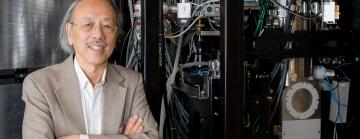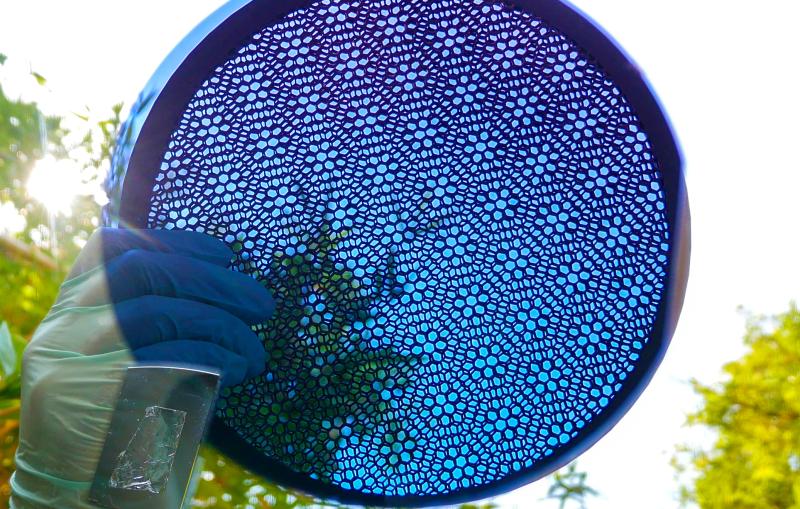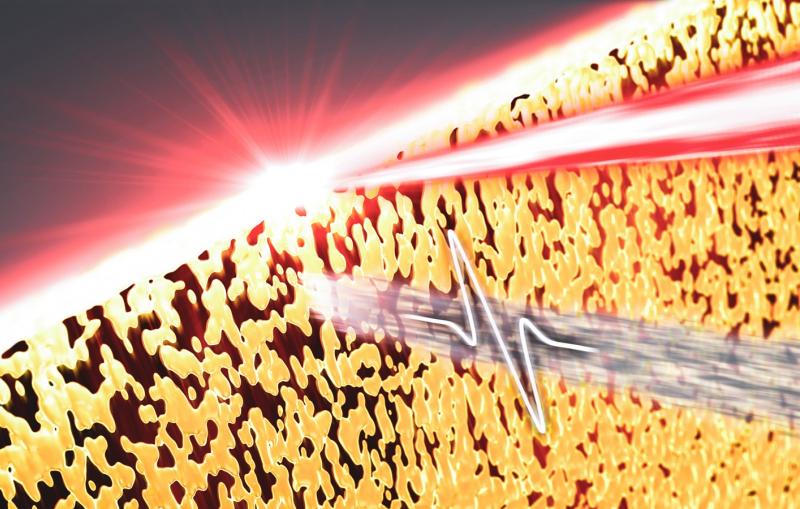Wah Chiu appointed first Wallenberg-Bienenstock Professor at SLAC and Stanford
A pioneer in developing methods for cryogenic electron microscopy, he directs two joint facilities for cryo-EM research and development on the SLAC campus.
Wah Chiu, a pioneer in the development of methods for cryo-electron microscopy (cryo-EM), has been named the Wallenberg-Bienenstock Professor at the Department of Energy’s SLAC National Accelerator Laboratory and Stanford University. It is the first endowed professorship reserved for faculty with joint appointments at SLAC and Stanford, and Chiu is the first to hold it.
Chiu came to Stanford and SLAC in 2017 from Baylor College of Medicine. He is a professor of photon science at SLAC, and of bioengineering and microbiology and immunology at Stanford; director of the Division of Cryo-EM and Bioimaging at SLAC’s Stanford Synchrotron Radiation Lightsource (SSRL); and co-director of the Stanford-SLAC Cryo-EM facilities.
Under Chiu’s leadership, Stanford faculty, postdoctoral researchers and students from across the university have received training in how to use the Stanford-SLAC Cryo-EM facilities for productive research. The facilities have been producing structures of important biological systems, such as RNA, viral proteins, protein complexes and engineered protein machines, at near-atomic resolution.
Chiu is also working with SLAC faculty and scientists to develop the next generation of instruments and to apply machine learning to cryo-EM data challenges. Among their many projects, they are contributing to the understanding of the atomic structures of molecular components of SARS-CoV-2, the virus that causes COVID-19, and its interactions with human cells, with the aim of developing novel vaccine and therapeutic strategies.
Chiu directs the NIH-funded National Center for Macromolecular Imaging, which he founded at Baylor three decades ago. He also directs a new Stanford-SLAC Cryo-EM Center accessible to international scientists under the support of the National Institutes of Health Common Fund.
The Wallenberg-Bienenstock Professorship honors Arthur I. “Artie” Bienenstock “for his outstanding efforts to strengthen links between Stanford and Swedish universities,” said Peter Wallenberg Jr., chairman of the Knut and Alice Wallenberg Foundation, in announcing the establishment of the endowed chair in 2015. Bienenstock is vice provost and dean of research emeritus at Stanford, as well as an emeritus professor of applied physics and of materials science and engineering at Stanford and of photon science at SLAC. He is also director emeritus of SLAC’s Stanford Synchrotron Radiation Lightsource.
Bienenstock served for more than a decade as Stanford’s Wallenberg Research Link director, fostering relationships between Stanford and Swedish researchers and overseeing the Wallenberg Postdoc Program at the university. The Wallenberg-Bienenstock chair recognizes his long and distinguished service to both SLAC and Stanford.
“This appointment recognizes Wah’s significant contributions to advancing biological discovery,” said SLAC Director Chi-Chang Kao. “Since joining Stanford and SLAC, he has collaborated with faculty and staff to bring the unique capabilities of cryo-EM to important research not only in biology, but also in materials and chemical sciences -- similar to what Artie brought to synchrotron research with his leadership at SSRL. I can’t think of a more appropriate way to recognize and celebrate the strong connections between SLAC and Stanford research that allow us to accelerate progress in so many fields.”
Chiu began his career at the University of California, Berkeley, where he earned a bachelor’s degree in physics and a PhD in biophysics. He did research at DOE’s Lawrence Berkeley National Laboratory and the University of Arizona before moving to Baylor College of Medicine, where he became the Alvin Romansky Professor of Biochemistry, the founding co-director of the W. M. Keck Center for Computational Biology, and founding director of both the Graduate Program in Structural and Computational Biology and Molecular Biophysics and the Center for Protein Folding Machinery.
His research, collaboration and training efforts have been recognized by elected membership to the Academia Sinica, Taiwan and the U.S. National Academy of Sciences, as well as honors including the Distinguished Science Award from the Microscopy Society of America and the Honorary Doctorate of Philosophy from the University of Helsinki, Finland.
Contact
For questions or comments, contact the SLAC Office of Communications at communications@slac.stanford.edu.
SLAC is a vibrant multiprogram laboratory that explores how the universe works at the biggest, smallest and fastest scales and invents powerful tools used by scientists around the globe. With research spanning particle physics, astrophysics and cosmology, materials, chemistry, bio- and energy sciences and scientific computing, we help solve real-world problems and advance the interests of the nation.
SLAC is operated by Stanford University for the U.S. Department of Energy’s Office of Science. The Office of Science is the single largest supporter of basic research in the physical sciences in the United States and is working to address some of the most pressing challenges of our time.






